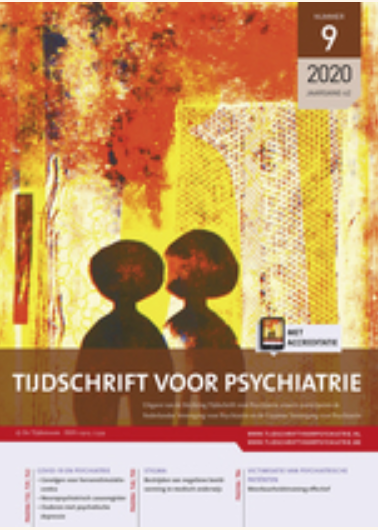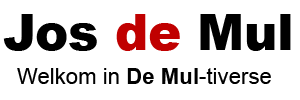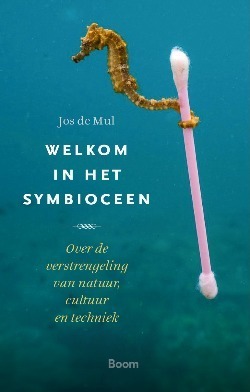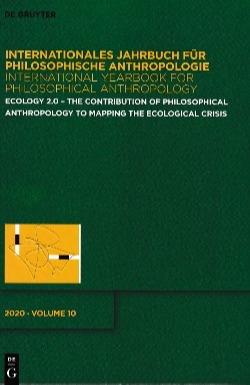The development of aesthetic judgement. Analysis of a genetic-structuralist approach
Jos de Mul. The development of aesthetic judgement. Analysis of a genetic-structuralist approach. In: The Journal of Aesthetic Education, Vol.22 (1988), 55-72.
The biotechnological sublime. From nature to technology and back
Jos de Mul. The biotechnological sublime. From nature to technology and back. Princeton Institute for Advanced Study. The Institute Letter. Spring 2013, 17.
Many things are awesome, but none more awesome than man.
Sophocles
Every once in a while we experience something extraordinary. Such ‘awesome’ experiences might happen in our research, when we unexpectedly discover something really amazing, or when we come across a magnificent landscape, hear a piece of music that really moves us, or when we fall deeply in love. Traditionally these kinds of extraordinary experiences are called “sublime”. In the following I will present some reflections on one particular kind of sublimity: the technological sublime.
The (Bio)Technological Sublime
Jos de Mul. The biotechnological sublime. In: Ken-ichi Sasaki (ed.), Aesthetics beyond Art. Special issue of Diogenes, Vol. 59 ( 1–2), 2013 32–40.
Abstract The notion of the sublime, which since the nineteenth century is one of the dominant aesthetic categories, is strongly connected with (the artistic representation of) overwhelming nature. In this article it is argued that in the course of the 20th century the sublime increasingly becomes entangled with the experience of technology. However, in the age of biotechnologies, such as genetic modification and synthetic biology, the sublime regains a natural dimension. Taking Eduard Kac’s Alba fluo rabbit (a ‘transgenic’ bunny, that resulted from the injection of green fluorescent protein of a Pacific jellyfish into the egg of an Albino rabbit) as an example, it will be argued that in the age of biotechnology the difference between nature, technology and art will gradually vanish, and new dimensions of the sublime will become manifest.
Svršeci umjetnosti (The End of Art)
Jos de Mul. Svršeci umjetnosti (The End of Art). ODJEK - Revija za umjetnost, nauku i društvena pitanja (ODJEK - Journal for Art, Science and Social Issues), no. 1, 2006, 30-46.
Slauerhoff en het romantische verlangen
Jos de Mul. Slauerhoff en het romantische verlangen. In: Preludium. Tijdschrift voor literatuur. Themanummer over het werk van J. Slauerhoff onder redactie van K. Fens en G.J. Kleinrensink, Jrg. 8/9 (1992), nr. 4-I, 59-77.
Rzeczywistość wirtualna - pomiędzy technologią, ontologią a sztuką
Jos de Mul. Rzeczywistość wirtualna - pomiędzy technologią, ontologią a sztuką. Przeł. M. Michałowska, Kultura Współczesna1999, nr 3, 13-14.
Résonances de la mort de Dieu, après les fins de l'art
Jos de Mul. Résonances de la mort de Dieu, après les fins de l'art. In: Figures de l'Art. Revue d'Études Esthétiques, no. X: "L'esthétique, aujourd'hui?" , Ed. Bernard Lafarque (2006), 265-277.
Publish and perish!
Jos de Mul. Publish and perish! Tijdschrift voor Filosofie. Jaargang 68, 2005, 417-434.
Psychosis as an Evolutionary Adaptive Mechanism to Changing Environments
Floortje Scheepers, Jos de Mul, Frits Boer and Witte Hoogendijk. Psychosis as an evolutionary adaptive mechanism to changing environments. Frontiers of Psychiatry, Volume 9, June 2018.

Aim: To argue the hypothesis that psychotic symptoms may not be viewed as an illness but as an adaptation phenomenon, which can become out of control due to different underlying brain vulnerabilities and external stressors, leading to social exclusion.
Methods: A literature study and analysis.
Results: Until now, biomedical research has not unravelld the definitive etiology of psychotic disorders. Findings are inconsistent and show non-specific brain anomalies and genetic variation with small effect sizes. However, compelling evidence was found for a relation between psychosis and stressful environmental factors, particularly those influencing social interaction. Psychotic symptoms may be explained as a natural defense mechanism or protective response to stressful environments. This is in line with the fact that psychotic symptoms most often develop during adolescence. In this phase of life, leaving the familiar, and safe home environment and building new social networks is one of the main tasks. This could cause symptoms of “hyperconsciousness” and calls on the capacity for social adaptation.
Conclusions: Psychotic symptoms may be considered as an evolutionary maintained phenomenon.Research investigating psychotic disorders may benefit from a focus on underlying general brain vulnerabilities or prevention of social exclusion, instead of psychotic symptoms.
Keywords: psychosis, evolution, adaptation, social exclusion, defense mechanism
Psychose als evolutionair adaptief mechanisme bij omgevingsverandering; pleidooi voor een functioneel verklaringsmodel.
Floortje Scheepers, Jos de Mul, Frits Boer and Witte Hoogendijk. Psychose als evolutionair adaptief mechanisme bij omgevingsverandering; pleidooi voor een functioneel verklaringsmodel. Tijdschrift voor psychiatrie. Jaargang 42, juni 2020, 472-480.

DOEL Argumenten aandragen voor de hypothese dat we psychotische symptomen op zichzelf niet moeten zien als afwijkend, maar als adaptief verschijnsel.
METHODE Filosofische beschouwing en literatuuronderzoek.
RESULTATEN Tot op heden heeft men met biomedisch onderzoek de etiologie van psychotische stoornissen nog niet definitief kunnen vaststellen. Bevindingen zijn inconsistent en laten niet-specifieke hersenafwijkingen zien en genetische variaties met kleine effectgroottes. Er zijn daarnaast overtuigende aanwijzingen voor een relatie tussen psychosegevoeligheid en stressvolle omgevingsfactoren, vooral als die samenhangen met sociale uitsluiting. Psychotische symptomen als fenomeen zouden we daarom wellicht beter kunnen begrijpen als een natuurlijk afweermechanisme of een protectieve reactie op een stressvolle omgeving. Dit past bij het gegeven dat psychotische symptomen meestal tot ontwikkeling komen tijdens de adolescentie. In deze levensfase is een belangrijke ontwikkelopgave het verlaten van de vertrouwde, veilige thuisomgeving en het ontwikkelen van nieuwe sociale netwerken. Dit kan een status van ‘hyperbewustzijn’ veroorzaken en doet een beroep op het vermogen tot sociale adaptatie. Dit mechanisme kan ontregeld raken door onderliggende kwetsbaarheid van de hersenen en/of externe stressoren die met sociale uitsluiting gepaard gaan.
CONCLUSIE Er is een theoretisch kader verdedigbaar waarin psychotische symptomen beschouwd worden als een evolutionair functioneel verschijnsel. Het onderzoek naar psychotische stoornissen kan gebaat zijn bij een focus op onderliggende algemene kwetsbaarheden van de hersenen of het voorkomen van sociale uitsluiting, in plaats van psychotische symptomen an sich als ‘abnormaal’ te beschouwen.
TREFWOORDEN psychose, evolutie, adaptatie, sociale uitsluiting, afweermechanisme




 Vanaf de derde druk verschijnt
Vanaf de derde druk verschijnt 





